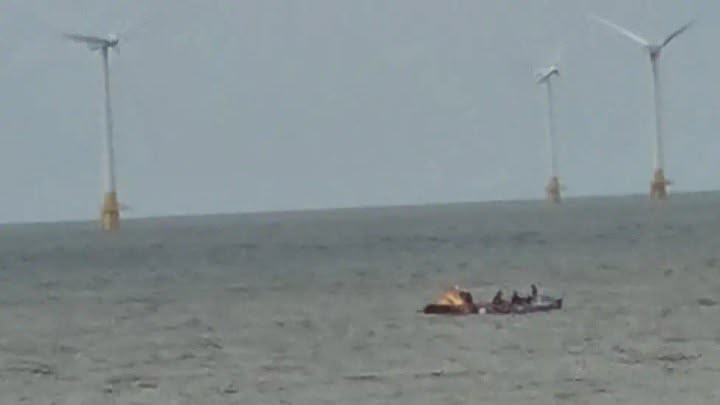A vision of hell
A "small boat" crewed by "fighting age men" profiled against three wind turbines (echoing perhaps Blake's "dark satanic mills"). Enough to cause palpitations in the breast of Great Yarmouth MP Rupert Lowe who patriotically posted the photo below and swore to use "every tool" at his disposal to secure the deportation of the "illegal migrants".
Except the boat turned out to be crewed by four rowers attempting to navigate from Lands End to John O'Groats for charity, who were understandably alarmed when a group of people with nothing better to do on a Thursday evening gathered on the beach and started shining torches in their faces.
Lowe, who made no apologies for "being vigilant for my constituents", nevertheless made a donation of £1,000 to the rowers' charity.
Except the boat turned out to be crewed by four rowers attempting to navigate from Lands End to John O'Groats for charity, who were understandably alarmed when a group of people with nothing better to do on a Thursday evening gathered on the beach and started shining torches in their faces.
Lowe, who made no apologies for "being vigilant for my constituents", nevertheless made a donation of £1,000 to the rowers' charity.






